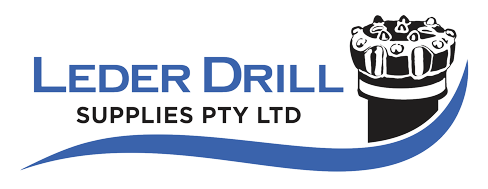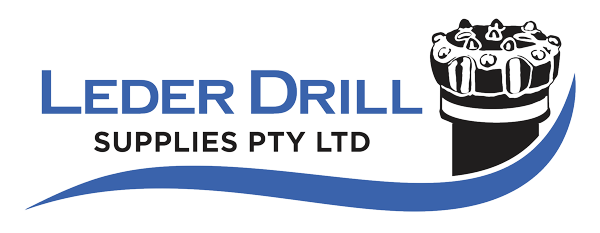
Applications of RC Drilling
RC drilling is a versatile drilling method that is used for a variety of applications, including:
Exploration drilling
RC drilling is a fast and efficient way to collect rock samples for mineral exploration. The cuttings are blown up the drill pipe, so there is no need to pull the rods out of the hole as often as with other drilling methods. This makes RC drilling a good choice for deep exploration drilling.
Grade control drilling
RC drilling is also used for grade control drilling, which is used to determine the grade of ore in a deposit. This information is important for planning mining operations.
Blast hole drilling
RC drilling can also be used for blast hole drilling, which is the process of drilling holes in rock that will be blasted to break up the rock for mining.
Water well drilling and geothermal well drilling
RC drilling can also be used for water well drilling and geothermal well drilling.
Please Note: Images are indicative only.


Applications of RC Drilling
RC drilling is a versatile drilling method that is used for a variety of applications, including:Exploration drilling
RC drilling is a fast and efficient way to collect rock samples for mineral exploration. The cuttings are blown up the drill pipe, so there is no need to pull the rods out of the hole as often as with other drilling methods. This makes RC drilling a good choice for deep exploration drilling.Grade control drilling
RC drilling is also used for grade control drilling, which is used to determine the grade of ore in a deposit. This information is important for planning mining operations.Blast hole drilling
RC drilling can also be used for blast hole drilling, which is the process of drilling holes in rock that will be blasted to break up the rock for mining.Water well drilling and geothermal well drilling
RC drilling can also be used for water well drilling and geothermal well drilling.Please Note: Images are indicative only.

Applications of RC Drilling
RC drilling is a versatile drilling method that is used for a variety of applications, including:Exploration drilling
RC drilling is a fast and efficient way to collect rock samples for mineral exploration. The cuttings are blown up the drill pipe, so there is no need to pull the rods out of the hole as often as with other drilling methods. This makes RC drilling a good choice for deep exploration drilling.Grade control drilling
RC drilling is also used for grade control drilling, which is used to determine the grade of ore in a deposit. This information is important for planning mining operations.Blast hole drilling
RC drilling can also be used for blast hole drilling, which is the process of drilling holes in rock that will be blasted to break up the rock for mining.Water well drilling and geothermal well drilling
RC drilling can also be used for water well drilling and geothermal well drilling.Please Note: Images are indicative only.

Operation
DTH hammers work by using compressed air to drive a piston back and forth, which in turn strikes a bit that is attached to the end of the drill string. This creates a hammering action that breaks up the rock and allows the drill to penetrate deeper into the ground.Benefits
Valved drill bits are equipped with valves that help to control the flow of air and cuttings through the bit. This helps to improve the drilling efficiency and reduces the amount of wear and tear on the bit.- Improved drilling efficiency: The valves help to control the flow of air and cuttings, which improves the drilling efficiency and reduces the amount of time it takes to drill a hole.
- Reduced wear and tear: The valves also help to protect the bit from wear and tear, which extends the life of the bit.
- Increased safety: Valved drill bits are designed to be more stable than other types of DTH drill bits, which can help to reduce the risk of accidents.
- Efficient: Can drill holes quickly and efficiently, even in hard rock formations.
- Powerful: Can deliver a lot of impact energy, which allows them to break up rock that would be difficult or impossible to drill with other methods.
- Versatile: Can be used to drill holes in a variety of rock formations, including hard rock, granite, and soft rock.
- Durable: Are built to withstand the rigors of mining and quarrying operations.
Applications
- Drilling blast holes for blasting operations
- Drilling exploratory holes for mineral exploration
- Drilling holes for water wells and geothermal wells
- Drilling holes for anchoring and foundation work

 Concave drill bits are a type of down-the-hole (DTH) drill bit used for drilling blast holes in mining and quarrying operations. They are designed to work with DTH hammers and are typically used to drill holes in hard rock formations.
Concave drill bits are a type of down-the-hole (DTH) drill bit used for drilling blast holes in mining and quarrying operations. They are designed to work with DTH hammers and are typically used to drill holes in hard rock formations.Applications
- Drilling blast holes for blasting operations: Concave drill bits are commonly used to drill blast holes for blasting operations in mining.
- Drilling exploratory holes for mineral exploration: Concave faced drill bits can also be used to drill exploratory holes for mineral exploration.
- Drilling holes for water wells and geothermal wells: Concave faced drill bits can be used to drill holes for water wells and geothermal wells.

 Concave drill bits are a type of down-the-hole (DTH) drill bit used for drilling blast holes in mining and quarrying operations. They are designed to work with DTH hammers and are typically used to drill holes in hard rock formations.
Concave drill bits are a type of down-the-hole (DTH) drill bit used for drilling blast holes in mining and quarrying operations. They are designed to work with DTH hammers and are typically used to drill holes in hard rock formations.Applications
- Drilling blast holes for blasting operations: Concave drill bits are commonly used to drill blast holes for blasting operations in mining.
- Drilling exploratory holes for mineral exploration: Concave faced drill bits can also be used to drill exploratory holes for mineral exploration.
- Drilling holes for water wells and geothermal wells: Concave faced drill bits can be used to drill holes for water wells and geothermal wells.

 Concave drill bits are a type of down-the-hole (DTH) drill bit used for drilling blast holes in mining and quarrying operations. They are designed to work with DTH hammers and are typically used to drill holes in hard rock formations.
Concave drill bits are a type of down-the-hole (DTH) drill bit used for drilling blast holes in mining and quarrying operations. They are designed to work with DTH hammers and are typically used to drill holes in hard rock formations.Applications
- Drilling blast holes for blasting operations: Concave drill bits are commonly used to drill blast holes for blasting operations in mining.
- Drilling exploratory holes for mineral exploration: Concave faced drill bits can also be used to drill exploratory holes for mineral exploration.
- Drilling holes for water wells and geothermal wells: Concave faced drill bits can be used to drill holes for water wells and geothermal wells.

Mining Drill Hammer Exhaust Tube
The exhaust tube, also known as the blow tube or exhaust pipe, is an important component of a mining drill hammer. It is responsible for channeling the exhaust gases from the hammer's pneumatic motor away from the operator and the drilling area.Functions:
- Directs exhaust gases away from the operator: The exhaust tube directs the hot and pressurized exhaust gases away from the operator, preventing burns and eye injuries.
- Reduces noise levels: The exhaust tube can help to reduce the noise levels generated by the hammer, making it a more comfortable tool to use.
- Protects the drilling equipment: The exhaust tube protects the drilling equipment from the harmful effects of the exhaust gases, such as corrosion and erosion. It also helps to prevent debris from being sucked into the hammer.

 Flat faced drill bits are a type of down-the-hole (DTH) drill bit used for drilling blast holes in mining and quarrying operations. They are designed to work with DTH hammers and are typically used to drill holes in hard rock formations.
Flat faced drill bits are a type of down-the-hole (DTH) drill bit used for drilling blast holes in mining and quarrying operations. They are designed to work with DTH hammers and are typically used to drill holes in hard rock formations.Applications
- Drilling blast holes for blasting operations: Flat faced drill bits are commonly used to drill blast holes for blasting operations in mining.
- Drilling exploratory holes for mineral exploration: Flat faced drill bits can also be used to drill exploratory holes for mineral exploration.
- Drilling holes for water wells and geothermal wells: Flat faced drill bits can be used to drill holes for water wells and geothermal wells.

 Flat faced drill bits are a type of down-the-hole (DTH) drill bit used for drilling blast holes in mining and quarrying operations. They are designed to work with DTH hammers and are typically used to drill holes in hard rock formations.
Flat faced drill bits are a type of down-the-hole (DTH) drill bit used for drilling blast holes in mining and quarrying operations. They are designed to work with DTH hammers and are typically used to drill holes in hard rock formations.Applications
- Drilling blast holes for blasting operations: Flat faced drill bits are commonly used to drill blast holes for blasting operations in mining.
- Drilling exploratory holes for mineral exploration: Flat faced drill bits can also be used to drill exploratory holes for mineral exploration.
- Drilling holes for water wells and geothermal wells: Flat faced drill bits can be used to drill holes for water wells and geothermal wells.

 Valved drill bits are a type of down-the-hole (DTH) drill bit used for drilling blast holes in mining and quarrying operations. They are designed to work with DTH hammers and are typically used to drill holes in hard rock formations.
Valved drill bits are a type of down-the-hole (DTH) drill bit used for drilling blast holes in mining and quarrying operations. They are designed to work with DTH hammers and are typically used to drill holes in hard rock formations.Benefits
Valved drill bits are equipped with valves that help to control the flow of air and cuttings through the bit. This helps to improve the drilling efficiency and reduces the amount of wear and tear on the bit.- Improved drilling efficiency: The valves help to control the flow of air and cuttings, which improves the drilling efficiency and reduces the amount of time it takes to drill a hole.
- Reduced wear and tear: The valves also help to protect the bit from wear and tear, which extends the life of the bit.
- Increased safety: Valved drill bits are designed to be more stable than other types of DTH drill bits, which can help to reduce the risk of accidents.
Applications
- Drilling blast holes for blasting operations: Valved drill bits are commonly used to drill blast holes for blasting operations in mining.
- Drilling exploratory holes for mineral exploration: Valved drill bits can also be used to drill exploratory holes for mineral exploration.
- Drilling holes for water wells and geothermal wells: Valved drill bits can be used to drill holes for water wells and geothermal wells.









